Now more than ever, travelers have an abundance of accommodation options—from traditional hotel chains to a variety of Airbnb properties. Airbnbs have grown so much since the company’s inception in 2008 that it now accounts for 20% of the United States consumer lodging market. Hotels are thriving; the average revenue per available hotel room grew to a 20-year high of $85.96 in 2017.
These travel options prompted the question: Is it better to book a hotel or Airbnb? To find the answer, Fit Small Business looked at the 15 most visited cities in the U.S. and analyzed each based on price—including taxes and fees—availability, location, and amenities and inclusions.
Unsurprisingly, our findings reaffirmed the importance of base accommodation prices. However, there were additional nuances we hadn’t originally considered. For instance, cities that have a high average housing cost—like San Francisco—also have higher Airbnb rates, making them less favorable than hotels. Also, there are fewer Airbnbs than hotels in these cities’ downtown and tourism-centric areas, making them less desirable.
On the flip side, where housing costs are relatively low—such as Austin—the sheer availability of Airbnbs makes them a better bet. Not only are there more options in these cities, but the number of Airbnb properties makes booking on short notice both possible and affordable.
To understand these nuances fully, we analyzed the following data:
- Tourism (Baseline): To find which cities enjoy the highest number of travelers, we first found data on tourism rates by city and chose the top 15 most-visited cities in the U.S. This information is available from sources like World Atlas and tourism boards such as Visit Seattle.
- Price (55%): Price is a traveler’s primary consideration for accommodation booking and, therefore, it holds the most weight in our analysis. We looked at the average advertised price per night for each lodging type as well as the final price per night, which includes all taxes and fees.
- Amenities, inclusions, and travel purpose (20%): We evaluated the difference between hotels and homeshares in terms of standard amenities such as included restaurants, room service, cleaning and laundry facilities, and more. We also considered common travel purposes for each city and the needs of those travelers to see whether they matched up better with hotels or Airbnbs.
- Availability (10%): The number of available hotels and Airbnbs in each city determines how many booking options travelers have; the more options, the easier it is to find a property that suits a traveler’s needs.
- Location (10%): In addition to the number of hotels and Airbnbs available in each city, we wanted to find out which lodging type has more offerings in desirable areas of the city, such as downtown sectors and major tourism sites.
- Regulatory environment (5%): Laws and regulations on homesharing and Airbnbs vary from city to city. While many Airbnbs still operate in banned or restricted areas, it is worth considering the regulatory environment for each destination. Hotels are generally not impacted by these regulations.
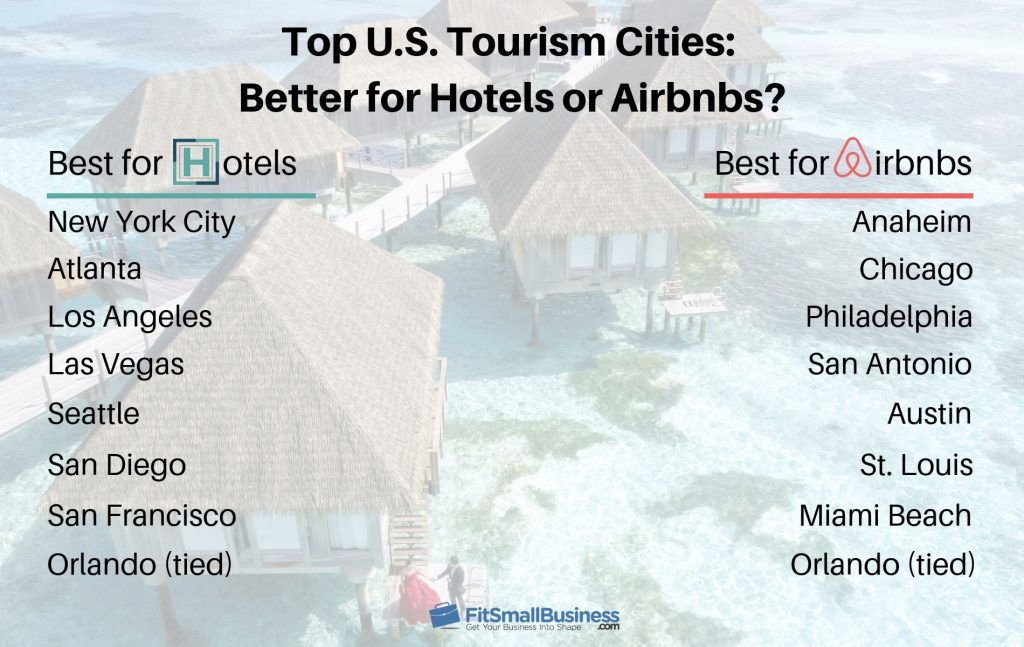
Top U.S. Tourism Cities: Best for Hotels or Airbnbs?
Here are the top 15 tourism cities in the U.S. and how hotels and Airbnbs rank in each.
1. New York City
Winner: Hotels
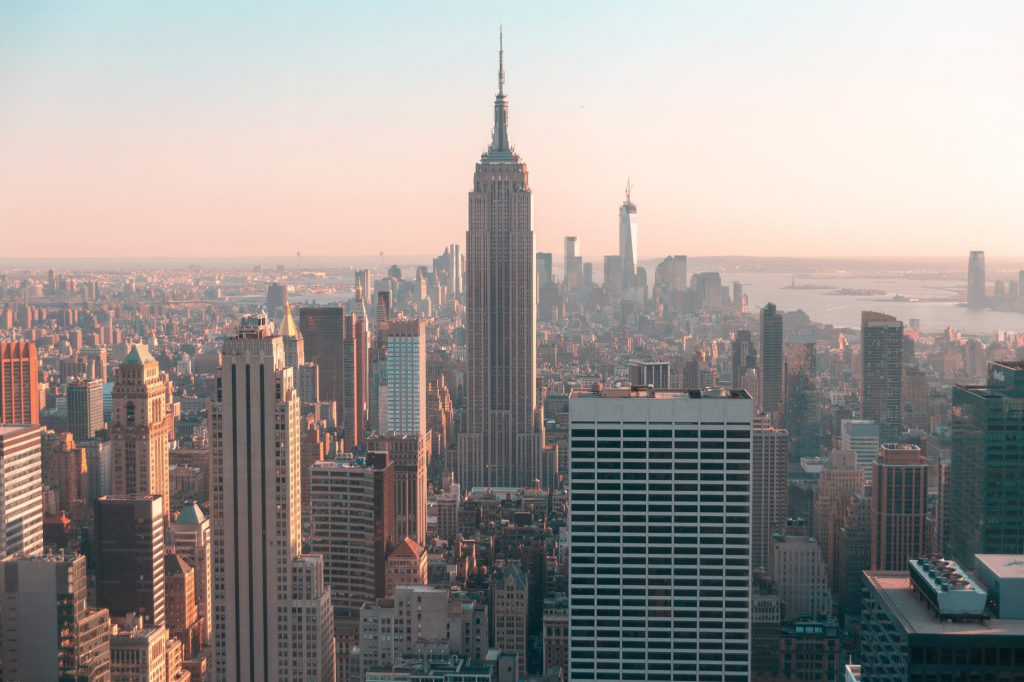
New York City
Why hotels win: Those traveling to New York City, a city renowned for grandeur, glitz, and glamour, should stick to hotels. Airbnbs here are a bit cheaper than hotels—7% to be exact—but what is notoriously small in the Big Apple are living spaces. Booking a hotel gives travelers ample space, plus a laundry list of amenities from onsite bars and pools to daily cleaning services.
It’s also worth noting that New York City has the most hotels out of the 15 most visited cities in the U.S. Additionally, while Airbnbs may seem like a catch—given their cheaper nightly rate—the high cost of housing means most in-city condos and houses are small. When these land on Airbnb lists and are compared to more spacious hotels, the choice is clear: hotels always win.
2. Chicago
Winner: Airbnbs
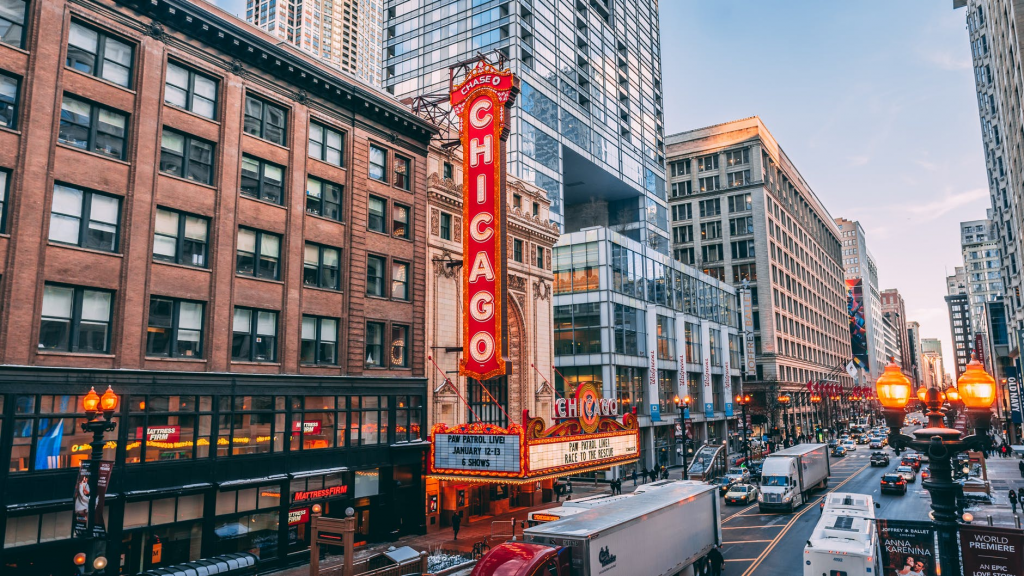
Chicago
Why Airbnbs win: Windy City travelers will find their best bet is to cozy up in an Airbnb. Although it’s a close call between hotels and Airbnbs in Chicago, the second-most visited city in the U.S. with more than 54 million visitors in 2018, Airbnb wins for its slightly lower total price and vast availability in prime areas. There are more than double the number of Airbnbs than hotels.
Chicago, like most cities that are best for Airbnb, has a reasonable cost of living. Its average home value is $226,400, according to Zillow, resulting in an abundance of quality home share options. Keep in mind, however, that hotels will cost less than Airbnbs for stays fewer than three nights, so those booking a weekend away should stick to hotels. Those who want luxury should also stick to established hotels. After all, the posh amenities they offer can’t be beaten by Airbnbs.
3. Atlanta
Winner: Hotels

Atlanta Aquarium
Why hotels win: Atlanta is the nation’s third-most visited city with approximately 51 million visitors per year. Unlike other top tourism cities, those visiting typically don’t stay more than two or three nights, and for that reason, the best option for travelers is to book a hotel. While Airbnbs and hotels are close in terms of pricing, hotels are a better value for short-term stays as travelers get more bang for their buck.
Atlanta goes a bit against the grain with this, however. Generally, cities with very high costs of living are best for hotels, given that property values are too expensive for homeowners to have second properties that they rent out as Airbnbs. However, this is not the case in Atlanta where the cost of living index just inches above the national average of 100 at 105.
4. Anaheim
Winner: Airbnbs
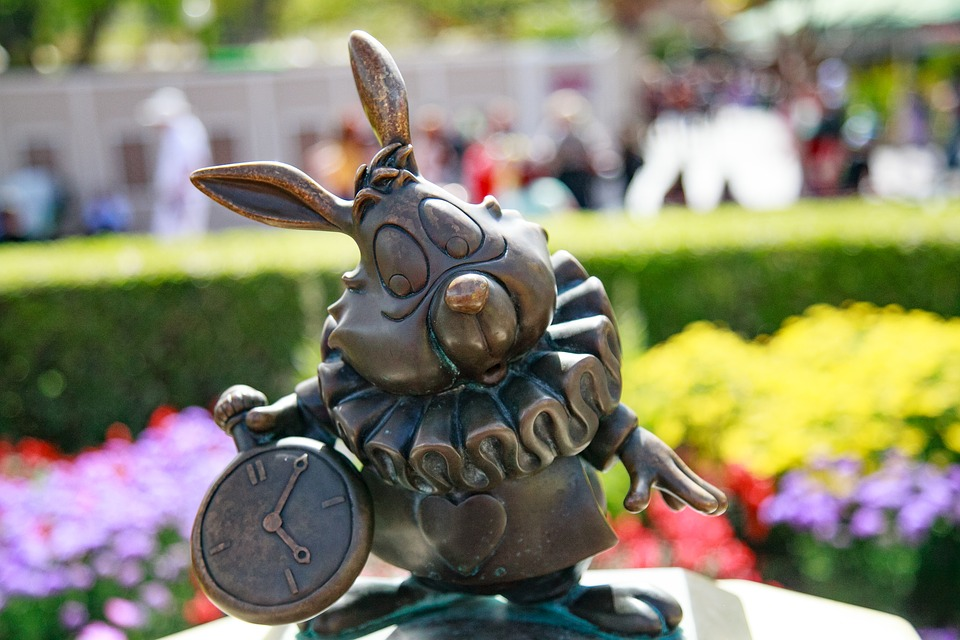
Disneyland in Anaheim
Why Airbnbs win: Anaheim, a popular family destination given its proximity to Disney, is prime for families looking for ample space at a lower cost than hotels. The total price per week, which includes taxes and all fees, is nearly $500 less for the average Airbnb than the average-priced hotel. Also, there are way more Airbnb properties—three times as many as hotels.
Anaheim, like Atlanta, upsets the accommodation apple cart. With its extraordinarily high cost of living—clocking in at 144 compared to the national average of 100—the city seems like it would be best for hotels. But this is remarkably untrue as the selection of Airbnbs is notably better than hotels, with significant in-room space to boot.
5. Orlando
Winner: Tied
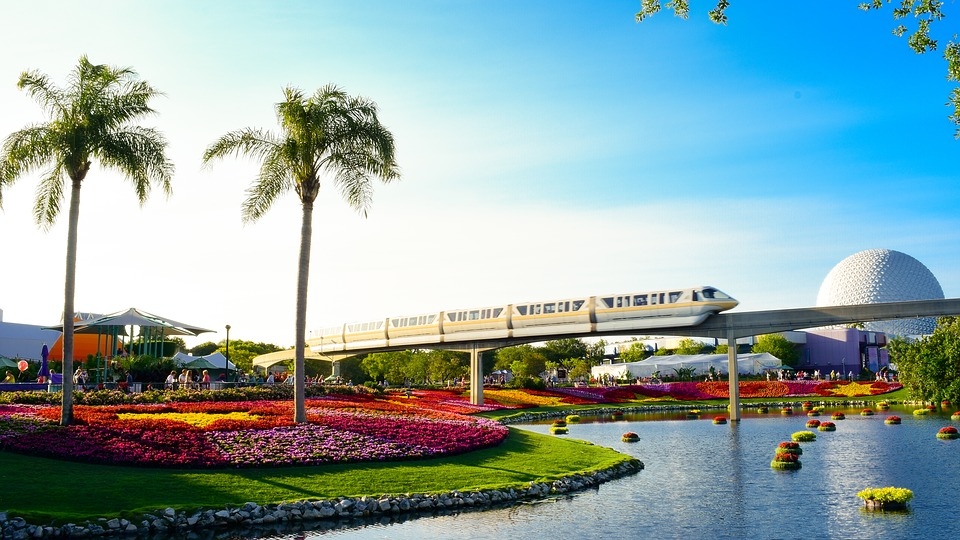
Orlando theme parks
Why it’s a tie: It’s a toss-up between Airbnbs and hotels for those jetting off to the city of sun-soaked amusement parks. Family-oriented Orlando is a travel destination geared toward children’s activities and family-friendly entertainment, but unlike Disney-centric Anaheim, the city enjoys a nice balance of Airbnb and hotel properties. Pricing for hotels and home shares are nearly the same. There’s just a small 6% difference for a seven-night stay at each.
Uniquely, Orlando offers hotel properties that offer a quintessential Disney experience. That can be a benefit or a detractor, depending on why you’re in the city, but at least you’ll have other options if you’d prefer not to fraternize with Mickey Mouse. Airbnbs that match hotel prices are available all around the area with less theme park-esque kitsch.
6. Los Angeles
Winner: Hotels
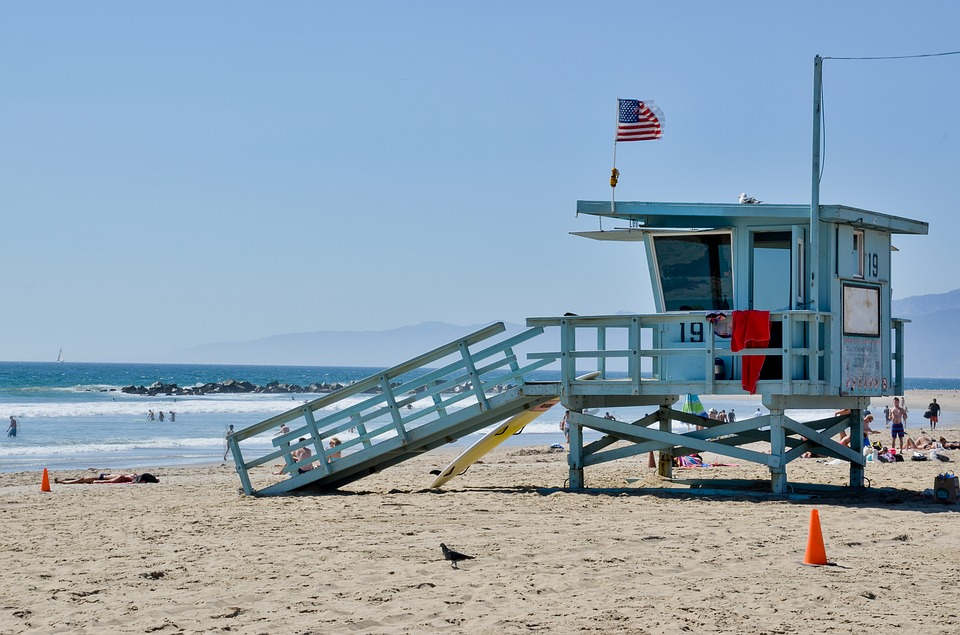
Venice Beach in Los Angeles
Why hotels win: Though hotels on average cost 11% more than Airbnbs in Los Angeles, hotels remain the best bet for travelers because of their central locations. What you’ve heard is true: Location is everything in Los Angeles, and real estate is some of the most expensive in the continental U.S. So, while Airbnbs with lower rates might seem appealing, travelers will find that it comes at the expense of location—a key consideration in a city where a 10-mile drive can take an hour.
Airbnb is also highly regulated in Westside Los Angeles—the Santa Monica/Venice Beach area—which also happens to be one of the most sought-after areas of Los Angeles. This high regulation generally means there are fewer Airbnb properties to choose from anyway. So, why not go with a hotel and get location plus top-notch amenities?
7. Las Vegas
Winner: Hotels
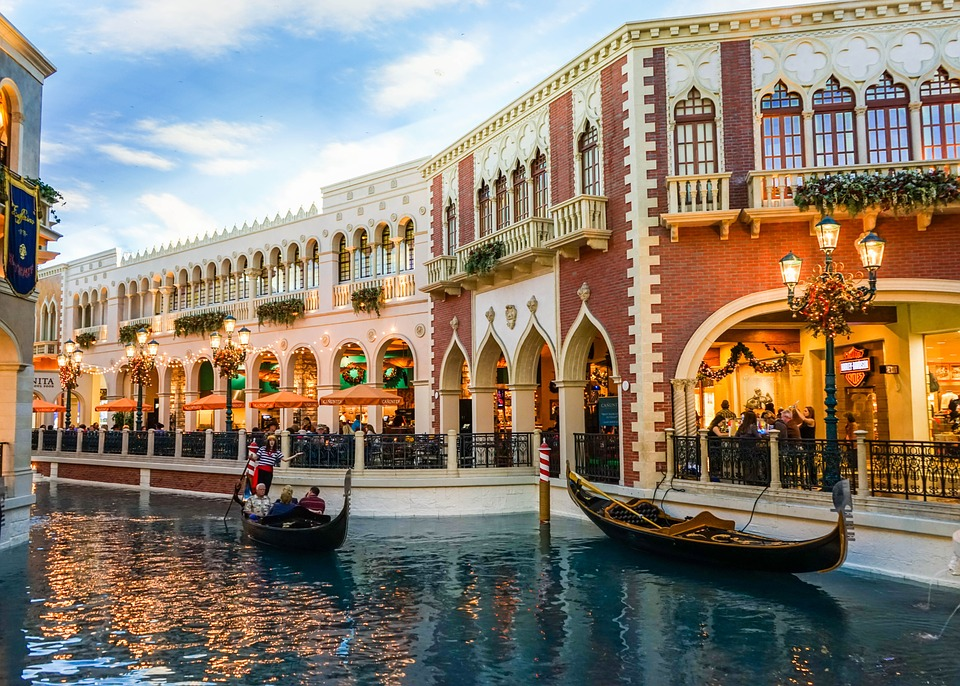
Las Vegas
Why hotels win: There’s no need to gamble with an Airbnb in Las Vegas, where quality hotels are abundant and cost 62% less per night on average than comparable Airbnbs. Vegas hotspots such as the Strip and Downtown are flush with high-quality, low-cost hotels with an average price per night of $170. Why is the cost so low? The abundance of hotels means higher competition. This forces each property to lower costs to attract guests.
Part of the reason why Vegas is hands-down better for hotels is that this 24/7 party city has the highest average Airbnb cleaning fee at $150—three times higher average. Also, most hotels in Vegas double as casinos, restaurants, bars, and nightclubs, or Vegas-style “day clubs.” Because most guests of Las Vegas love being in the middle of the action and seek a high-roller experience, hotels are the place to be.
8. Philadelphia
Winner: Airbnbs
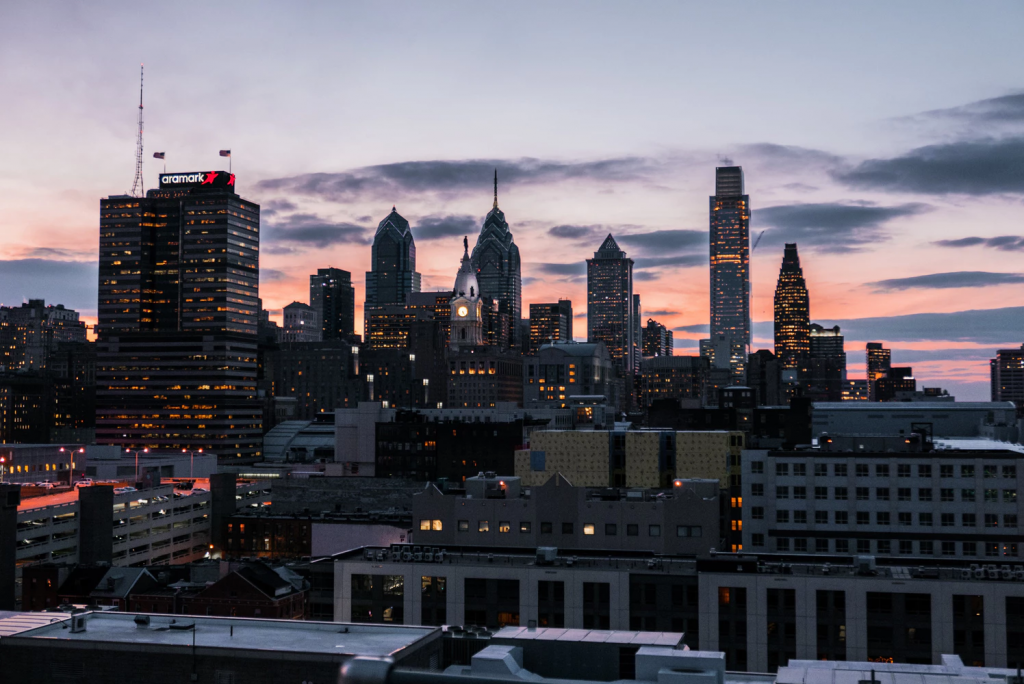
Philadelphia
Why Airbnbs win: Airbnbs win by a long shot in Philadelphia where one week’s stay at an Airbnb will cost you $1,200 less than at a hotel. With Airbnbs averaging half the price of hotels per night and about four times as many Airbnbs as hotels, travelers spend less and get more when booking an Airbnb in Philly.
Here’s a bit more context: Philadelphia has the second-highest average price per night for hotel stays at $342—just 10% lower than New York City’s average price per night. Yet, Philly also has the second-lowest average home value out of the top 15 tourism destinations at just $154,700, according to Zillow. Like most destinations with a low cost of housing, Airbnb wins out over hotels. Larger, more competitively priced properties in equally desirable areas kick hotels to the curb.
9. Seattle
Winner: Hotels
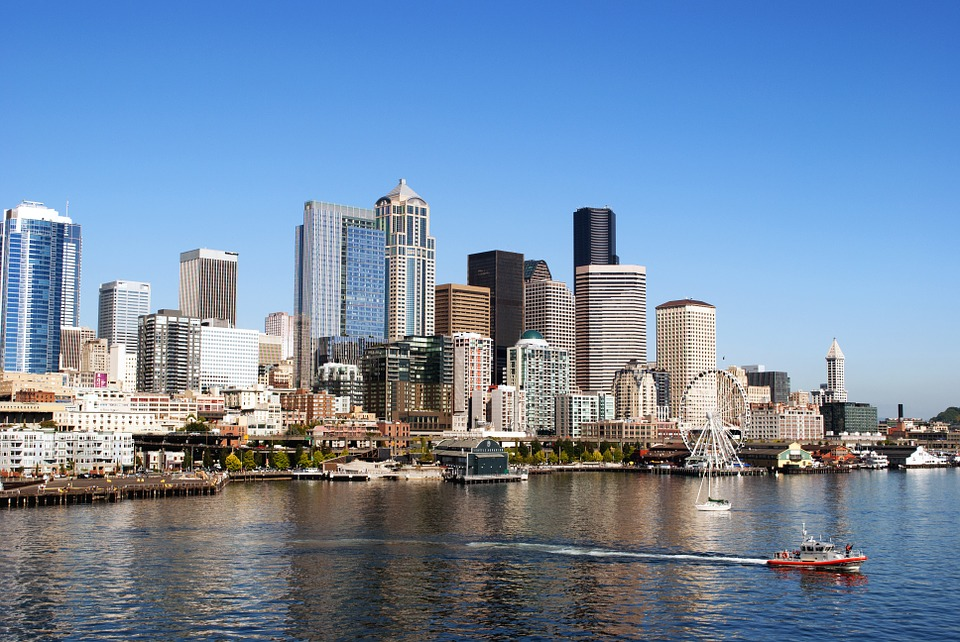
Seattle
Why hotels win: It’s a close call for Airbnb vs hotels in Seattle, but hotels win by a hair. The total price per night, including all taxes and fees, averages $213 for hotels and $221 for Airbnbs. With nearly identical pricing, hotels are the better choice because they provide more peace of mind with guaranteed bookings, easy check-ins, and hotel amenities such as 24-hour room service, on-site pools, and fitness centers.
What is surprising about Seattle, however, is how competitively priced its Airbnb options are. Given the high housing costs—the average home goes for around $715,000—one would expect available Airbnb properties to cost a fortune. While they don’t, allowing Airbnb devotees to pick a home that suits their fancy, travelers would still be better of choosing hotels given the cheaper price and included amenities.
10. San Diego
Winner: Hotels
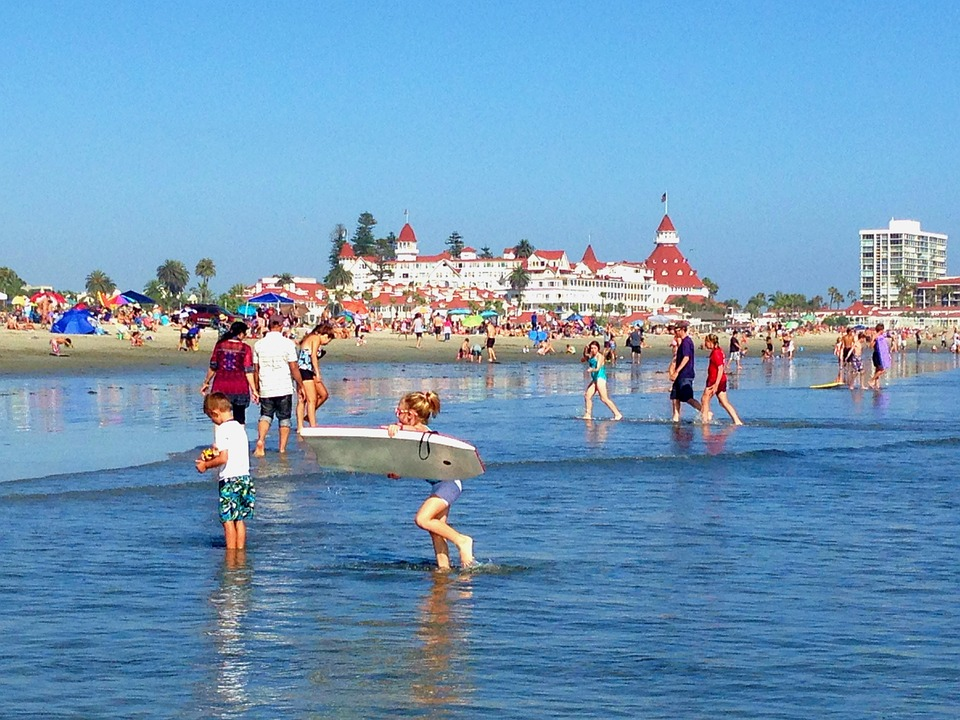
San Diego
Why hotels win: Stay classy, ye travelers to San Diego, and book a hotel for your next trip. Not only are hotels cheaper after taxes and fees than Airbnbs—on both a per-night and per-week basis—but there are a lot of hotels to choose from, the majority of which are in prime downtown spots.
On the face, the price per night for Airbnbs and hotels looks about the same—but that’s before taxes, Airbnb’s 13% fee, and an average cleaning fee of $60 per stay. The average total price per night after adding in all fees and taxes for hotels is about $191 whereas it’s about $266 for an Airbnb. Hotels also commonly have extra amenities such as free breakfast, parking, pools, and fitness centers, which are not common with Airbnbs in San Diego.
11. San Antonio
Winner: Airbnbs
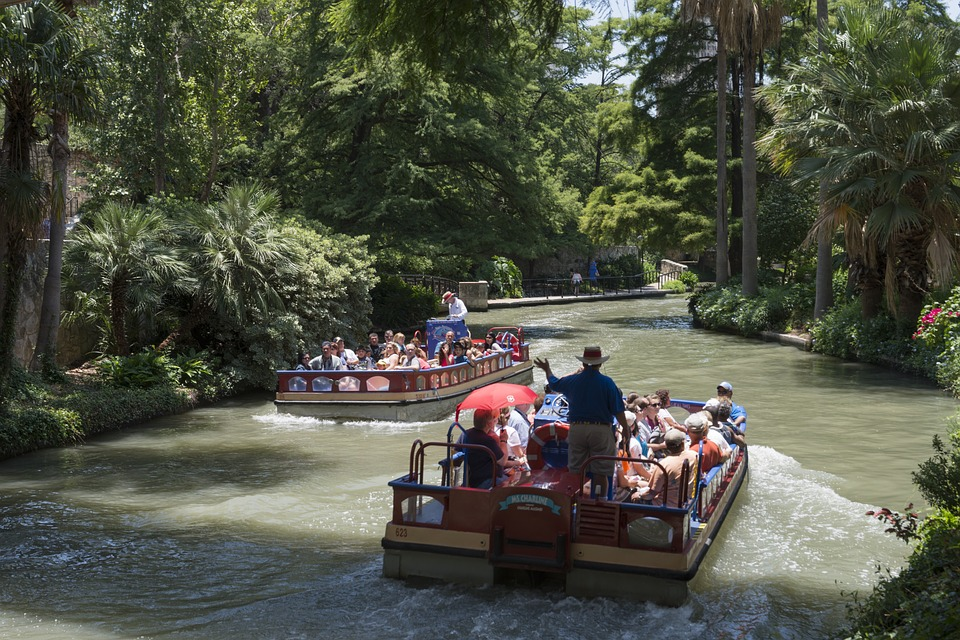
San Antonio tourism
Why Airbnbs win: Ditch the hotels in San Antonio and opt for an Airbnb for lower cost and more options. The average price per night for hotels and Airbnbs is $133 and $100, respectively. Typically, Airbnb nightly rates balloon after adding in the company’s 13% fee, city tax, and cleaning fees. However, in San Antonio, hotels charge guests an equally astonishing 16.25% city tax. Compare that to Airbnb’s 6% tax and modest cleaning fee of $30 per stay, and you have a clear winner.
In a week, the cost to stay at a hotel is $1,087 compared to just $863 at an Airbnb. It’s also worth mentioning that San Antonio has a low cost of housing with the average home running only $177,400; this means more and larger properties that end up on the Airbnb app. Plus, most of the Airbnbs here get exceptional reviews. Couple that with prices that are roughly 23% less than hotels, and you have your choice made for you.
12. Austin
Winner: Airbnbs
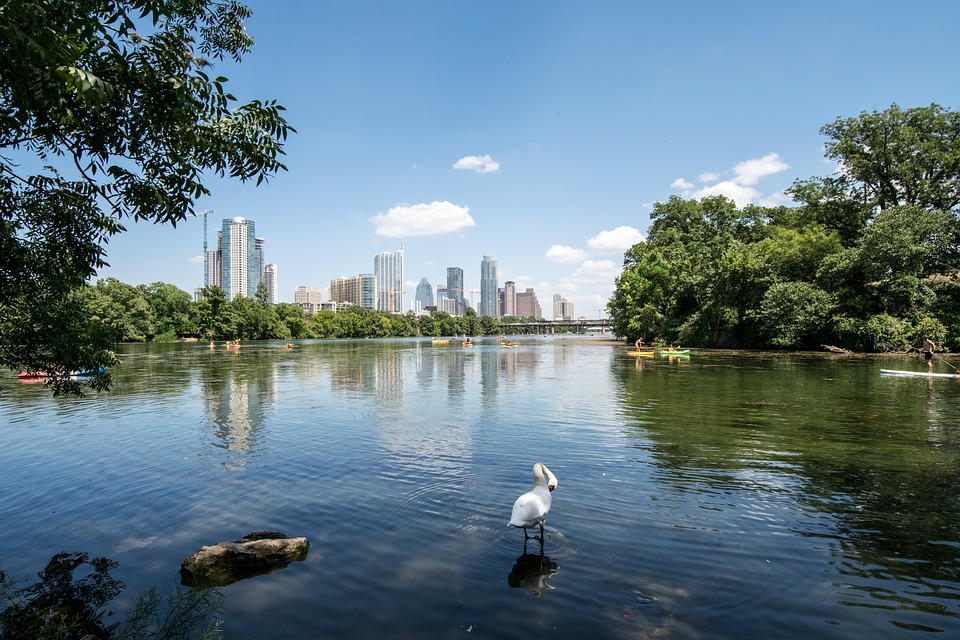
Austin
Why Airbnbs win: Are you going to Austin? Grab an Airbnb. While the total price per night is about the same as a hotel, the price per week is less with an Airbnb, and travelers will arguably have a more authentic Austin experience by living like a local—something many travelers say they want to experience.
Austin travelers also have a lot more options when booking an Airbnb compared to a hotel while enjoying better locations. There’s a higher percentage of available Airbnbs in the downtown area than hotels. Also, the average Airbnb in Austin is said to be equivalent to a three-star hotel, so travelers will undoubtedly enjoy an exceptional stay for less.
13. St. Louis
Winner: Airbnbs
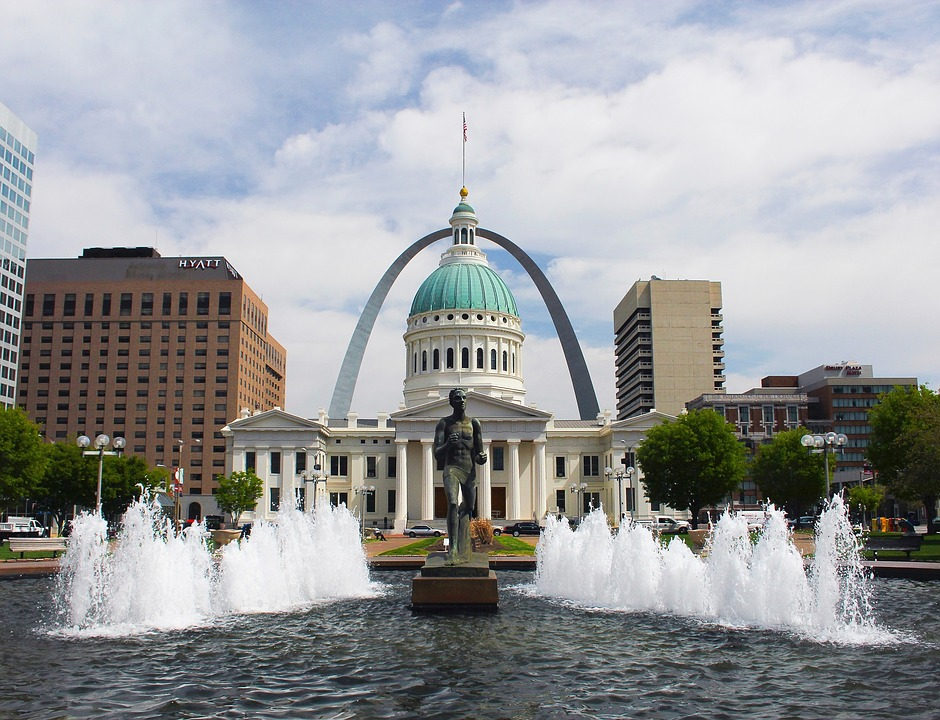
St. Louis
Why Airbnbs win: The Gateway to the West is best enjoyed from an Airbnb. Yes, St. Louis’s nearly 26 million yearly visitors will get a whole lot more space for nearly half the price by booking an Airbnb over a hotel. It’s hard to believe, but it’s true. The total price per night for a hotel costs $221 compared to just $136 on average for an Airbnb.
Airbnb also gives travelers much more choice. The city has around 200 hotels, although they book well in advance. Try to book a hotel three months in advance of your stay, and you’ll be limited to only 50 hotels. At the same time, you can peruse a selection of more than 300 Airbnbs. There’s no question here as, between price and availability, those traveling to St. Louis are best served to go with Airbnb.
14. San Francisco
Winner: Hotels
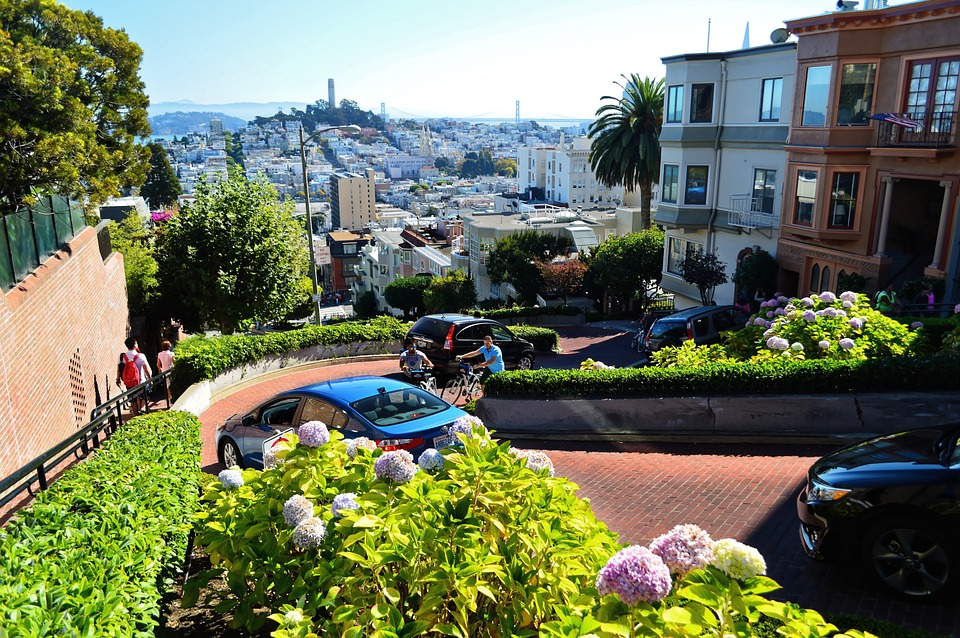
San Francisco
Why hotels win: Hotels and Airbnbs are nearly the same in terms of pricing in San Francisco, although hotels are the better bet given their amenities. For about the same price you can get a four-star hotel in downtown compared to a three-star-quality Airbnb. Not only are the hotels more expensive than Airbnbs at the same price, but there are also more hotels to choose from in the most desirable areas.
It won’t surprise you to learn that San Francisco is an incredibly expensive city to live in with the average home costing residents an absurd $1,362,200, according to Zillow. This means fewer Airbnb properties to choose from. What’s more, hotels give you more for your money, including perks like 24-hour front desk service, hot breakfasts, on-site bars, and health centers.
15. Miami Beach
Winner: Airbnbs
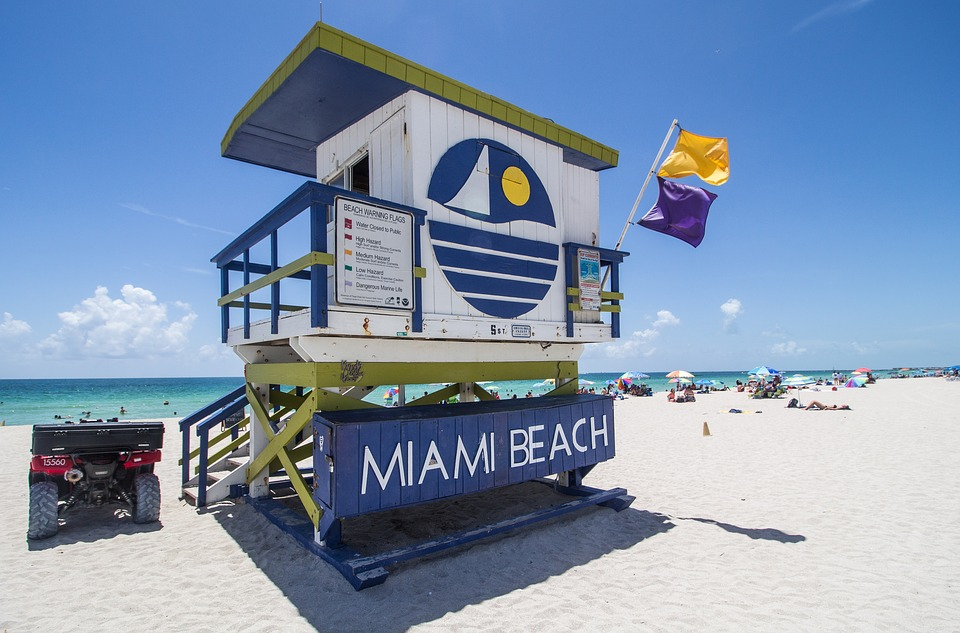
Miami Beach
Why Airbnbs win: In Miami Beach, hotels and Airbnbs are similarly priced―around $300 for a hotel and around $279 for an Airbnb after all taxes and fees―but you’ll get more if you go with an Airbnb. Unlike other cities where Airbnbs provide more space at the expense of amenities such as pools, tennis courts, 24-hour check-in, Airbnbs in Miami Beach are mostly located within condominium complexes that offer resort-like amenities.
For those not in the know, Miami Beach is a party town that tends to attract groups of friends traveling together. Airbnbs give groups like these more private space than hotels to gather, mingle, and party. While hotels certainly enjoy party time, party noise often leaks into the rooms, which is why Airbnbs might be the better option for those who want control over their fun.
Complete Ranking of Best & Worst Tourism Cities for Airbnb and Hotels 2019
|
City |
Tourism Rate (in millions) |
Avg. Price Per Night |
Real Price Per Night (After Taxes & Fees) |
Real Price Per Week (After Taxes & Fees) |
Amenities & Inclusions by Star Rating |
Availability (Approx. 3 Months in Advance |
Location (Percentage in Desirable Areas) |
Regulatory Environment |
Cost of Living (by city) |
||||||
|---|---|---|---|---|---|---|---|---|---|---|---|---|---|---|---|
|
Hotels |
Airbnb |
Hotels |
Airbnb |
Hotels |
Airbnb |
Hotels |
Airbnb |
Hotels |
Airbnb |
Hotels |
Airbnb |
||||
|
New York City |
59.7 |
$379 |
$299 |
$438 |
$408 |
$3,069 |
$2,435 |
$4 |
$2 |
349 |
300+ |
96.28% |
100% |
Highly regulated |
166 |
|
Chicago |
54.1 |
$199 |
$170 |
$234 |
$242 |
$1,635 |
$1,572 |
$4 |
$3 |
139 |
300+ |
96.40% |
100% |
Lenient |
113 |
|
Atlanta |
51 |
$128 |
$148 |
$153 |
$217 |
$1,074 |
$1,221 |
$3 |
$4 |
214 |
289 |
53.74% |
100% |
Lenient |
105 |
|
Anaheim/Orange County |
48.2 |
$252 |
$171 |
$297 |
$243 |
$2,081 |
$1,403 |
$3 |
$3 |
76 |
255 |
52.63% |
100% |
Strict regulations |
144 |
|
Orlando |
48 |
$116 |
$108 |
$136 |
$196 |
$949 |
$1,009 |
$3 |
$3 |
244 |
176 |
81.56% |
75% |
Lenient |
98 |
|
Los Angeles |
47.3 |
$297 |
$213 |
$348 |
$311 |
$2,436 |
$1,934 |
$4 |
$3 |
250 |
300+ |
75.20% |
50% |
HIghly regulated (Santa Monica/Westside) |
146 |
|
Las Vegas |
42.9 |
$170 |
$210 |
$217 |
$415 |
$1,520 |
$2,002 |
$3 |
$3 |
115 |
181 |
68.70% |
50% |
Strict regulations |
100 |
|
Philadelphia |
42 |
$342 |
$166 |
$398 |
$245 |
$2,783 |
$1,532 |
$3 |
$2 |
61 |
300+ |
81.97% |
80% |
Lenient |
104 |
|
Seattle |
39.9 |
$183 |
$141 |
$214 |
$221 |
$1,495 |
$1,309 |
$4 |
$3 |
91 |
300+ |
90.11% |
90% |
Strict regulations |
159 |
|
San Diego |
34.9 |
$170 |
$167 |
$192 |
$266 |
$1,341 |
$1,504 |
$3 |
$4 |
191 |
300+ |
76.44% |
60% |
Strict regulations |
146 |
|
San Antonio |
31 |
$133 |
$100 |
$155 |
$149 |
$1,087 |
$863 |
$3 |
$3 |
239 |
300+ |
70.29% |
90% |
Lenient |
86 |
|
Austin |
27.4 |
$214 |
$186 |
$246 |
$251 |
$1,723 |
$1,579 |
$3 |
$3 |
70 |
300+ |
51.43% |
90% |
Lenient |
107 |
|
St. Louis |
25.88 |
$186 |
$97 |
$221 |
$137 |
$1,548 |
$836 |
$3 |
$3 |
44 |
300+ |
79.55% |
75% |
Lenient |
89 |
|
San Francisco |
25 |
$243 |
$198 |
$282 |
$291 |
$1,977 |
$1,800 |
$4 |
$3 |
173 |
300+ |
28.90% |
50% |
Highly regulated |
202 |
|
Miami Beach |
23 |
$237 |
$200 |
$300 |
$279 |
$2,101 |
$1,803 |
$4 |
$3 |
182 |
300+ |
85.16% |
100% |
Strict regulations |
129 |
Ranking Methodology
To compare hotels to Airbnbs, we first started by picking the top 15 cities in the U.S. based on tourism rates. With the 15 top tourism destinations selected, we then considered specific factors for hotels and Airbnbs in each city to determine which was more favorable for travelers. These included price―including average price per night, the total price per night, and total price per week―availability, location, taxes and fees, amenities and inclusions, and local regulations.
Here is an overview of our ranking methodology.
Tourism (Baseline)
To create our initial list of travel-heavy cities, we looked at the top 15 tourism destinations in the U.S. We gathered this data from World Atlas.
Total Cost (55%)
Cost is undeniably the main consideration in accommodation booking. For this reason, we researched and analyzed average advertised prices per night as well as final prices per night, inclusive of taxes and fees. For all of this pricing information, we used Airbnb and hotel-booking sites such as Hotels.com and Booking.com.
Amenities, Inclusions & Travel Purpose (20%)
Airbnbs and hotels have widely varied amenities and inclusions, so we looked at what travelers get for the price of each lodging-type. This includes conveniences, ease of check-in, guaranteed booking, facilities, and average star ratings. This information is available from Airbnb and hotel booking sites.
Availability of Accommodations (10%)
We also considered the availability of hotels and Airbnbs in each city to gauge the number of options travelers have; this includes availability immediately before travel and several months in advance. We procured this information from Airbnb and hotel booking sites.
Location (10%)
Additionally, we looked at the percentage of hotels and home shares that are available in the most desirable areas in each destination, such as downtown sectors and tourist-heavy sites. While the number of hotels and Airbnbs is important, location is equally as critical as it determines what transit, if any, is required to visit desirable areas. This information was secured from Airbnb and hotel booking sites.
Regulatory Environment (5%)
Airbnb is increasingly becoming restricted—even banned—in cities across the country. While travelers will likely still find listings in restricted cities, reservations in these locations will likely put them in uncomfortable situations. To avoid this, we sought out information from Airbnb about homeshare regulations. Hotels are not affected by this.
Bottom Line: Best & Worst Tourism Cities for Hotels & Airbnbs
As Airbnb continues its rapid growth trajectory and hotels see growing revenues, travelers will continue to have more accommodation options. The abundance of choice doesn’t have to lead complicated travel planning, however. Consult our study above to find the best option for you in each of the top 15 tourism cities in the U.S.
Read More
0 تعليقات